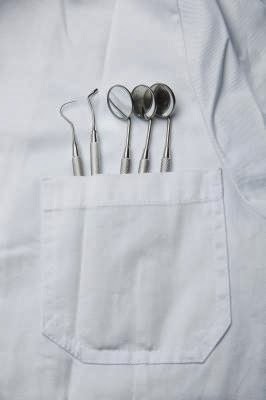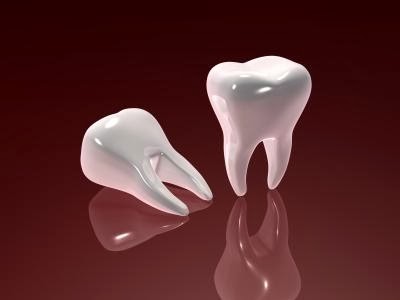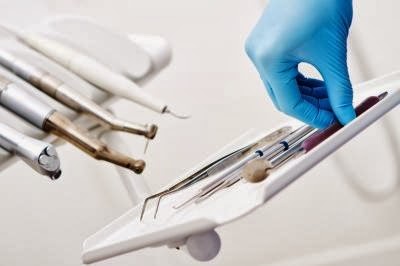With our questionable diets, habits such as smoking and drinking alcohol, general wear-and-tear and less than perfect oral hygiene, it’s no surprise that most people lose at least one of their natural teeth before reaching late adulthood. Full-blown edentulism (not having any teeth at all) is a far more common state for those entering into their golden years. But there is another factor that can lead to the loss of more teeth than any other: accidental trauma received to the face and/or mouth.
 "Perhaps second only to gum disease, an oral surgeon’s most common patients are those who have sustained trauma to the face and mouth,” say dental implants surgeons in Rutherford. “Contact sports, extreme sports and recreational activities, such as bicycling and skateboarding, are frequently the cause of facial injuries that can lead to the irreparable damage of teeth.”
"Perhaps second only to gum disease, an oral surgeon’s most common patients are those who have sustained trauma to the face and mouth,” say dental implants surgeons in Rutherford. “Contact sports, extreme sports and recreational activities, such as bicycling and skateboarding, are frequently the cause of facial injuries that can lead to the irreparable damage of teeth.”
Thankfully, there are protective measures you can take to prevent a fall or blow to the body from leaving anything more than a bruise. Elbow pads, shin guards, helmets... But what about your teeth? That’s where mouth guards come in!
What Are Mouth Guards?
“It’s all in the name really,” says a dentist in New Jersey. “A mouth guard is a covering that is worn over the teeth. Professional sportsmen and women wear them and so should you if you engage in any contact or extreme sports. Even if you play social football or hockey once a week, you should invest in a mouth guard. It only takes one unfortunate blow to the face or a stray hockey puck to the teeth to see you in a dental implant surgeon’s office. Rather spend a few dollars on a mouth guard than a few thousand on replacing shattered teeth!”
Different Kinds of Mouth Guards
There are three different kinds of mouth guards:
1. Stock mouth protectors, which are mass-produced, preformed guards that you can pick up at any sports or department store. They tend to be uncomfortable, bulky and make it difficult to talk or even breathe. “If you’re serious about keeping your teeth in good nick, we don’t really recommend stock mouth protectors because they don’t provide much protection at all,” say dentists in New Jersey.
2. “Boil and bite” mouth protectors are far better because they can be softened in hot water and then shaped around the teeth using pressure from the tongue and fingers. This provides a far more comfortable custom fit and one that offers greater protection. Boil and bite mouth guards are available from most sports stores.
 3. Custom-fitted mouth guards are the best yet. They are custom made in a dentist’s office from molds or impressions that have been taken of your teeth. “Custom mouth guards may be more costly than store-bought protectors, but they offer superior protection and are far more comfortable,” say dental implants surgeons in Rutherford. “Most professional sports players invest in these.”
3. Custom-fitted mouth guards are the best yet. They are custom made in a dentist’s office from molds or impressions that have been taken of your teeth. “Custom mouth guards may be more costly than store-bought protectors, but they offer superior protection and are far more comfortable,” say dental implants surgeons in Rutherford. “Most professional sports players invest in these.”
Whatever option you go for, you should be on the lookout for the following: An effective mouth protector should resist tears, be comfortable, durable, and easy to clean and it shouldn't make talking, breathing or swallowing difficult.
A Final Note...
So, whether you’re a child, teenager or adult and whether your passion is football, hockey, cricket, gymnastics, mountain biking or skateboarding… if there is any risk that you might receive a blow to the mouth, getting a mouth guard fitted is a fantastic idea and one that might prevent you from being rushed to the New Jersey dentist’s office for a dental emergency!
 “The length of recovery and the degree to which it is recommended that you keep your feet up depends heavily upon the nature of the procedure you’ve just undergone,” explain the NJ dental implants surgeons. “For example, if your child has had a decayed primary or baby tooth removed, typically recovery is quick and with minimal discomfort, save perhaps for a little treat to reward them for their bravery. If you’ve had an adult decayed tooth extracted, you may want to avoid certain strenuous activities and tough foods for 24 to 48 hours to prevent bleeding.”
“The length of recovery and the degree to which it is recommended that you keep your feet up depends heavily upon the nature of the procedure you’ve just undergone,” explain the NJ dental implants surgeons. “For example, if your child has had a decayed primary or baby tooth removed, typically recovery is quick and with minimal discomfort, save perhaps for a little treat to reward them for their bravery. If you’ve had an adult decayed tooth extracted, you may want to avoid certain strenuous activities and tough foods for 24 to 48 hours to prevent bleeding.”
 “Before we even pick up a tool, we rub a topical anesthetic cream onto the gums where we intend to inject the numbing medication. The former prevents the latter from being painful and the latter prevents the procedure from being painful,” explains the dentist in New Jersey. “This way, patients typically have absolutely nothing to be afraid of… not even the needle used to administer anesthetic.”
“Before we even pick up a tool, we rub a topical anesthetic cream onto the gums where we intend to inject the numbing medication. The former prevents the latter from being painful and the latter prevents the procedure from being painful,” explains the dentist in New Jersey. “This way, patients typically have absolutely nothing to be afraid of… not even the needle used to administer anesthetic.”
 What this idiom fails to elucidate is the fact that the modern procedures and techniques used to extract teeth nowadays are really no longer painful. In fact, dental extractions are in most cases one of the quickest, simplest and least painful of all the surgical procedures.
What this idiom fails to elucidate is the fact that the modern procedures and techniques used to extract teeth nowadays are really no longer painful. In fact, dental extractions are in most cases one of the quickest, simplest and least painful of all the surgical procedures. “No quality dentist would remove a patient’s natural tooth without first being certain that there is nothing else that can be done to save it. You see, while dental implants (and the restorations they support) offer New Jersey residents a very sophisticated, functional and aesthetic solution to missing teeth, nothing on the market can rival your own biological technology.
“No quality dentist would remove a patient’s natural tooth without first being certain that there is nothing else that can be done to save it. You see, while dental implants (and the restorations they support) offer New Jersey residents a very sophisticated, functional and aesthetic solution to missing teeth, nothing on the market can rival your own biological technology.